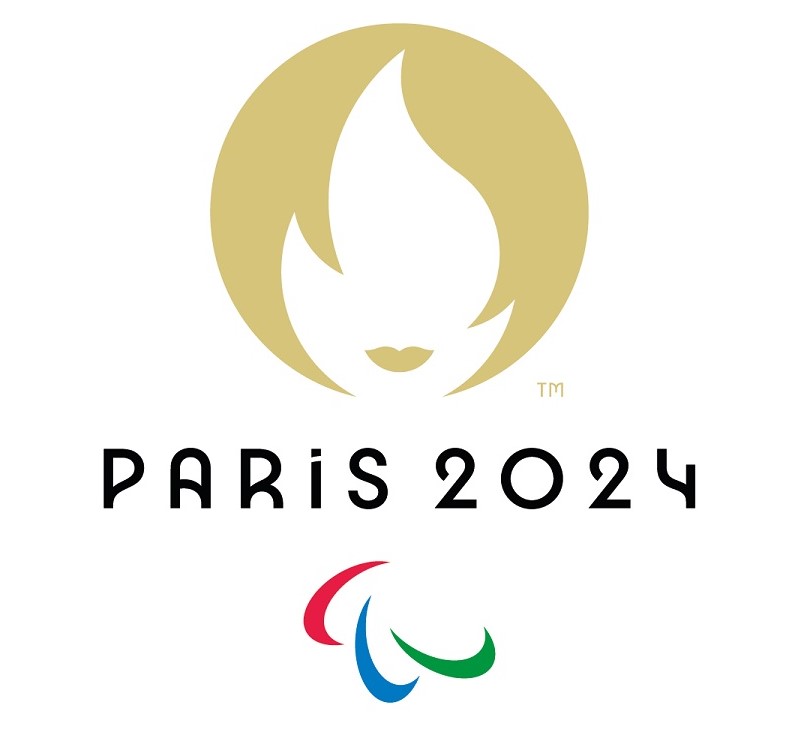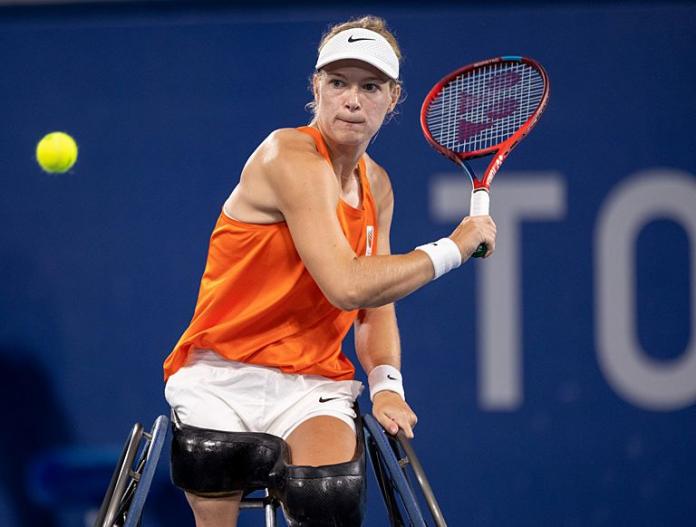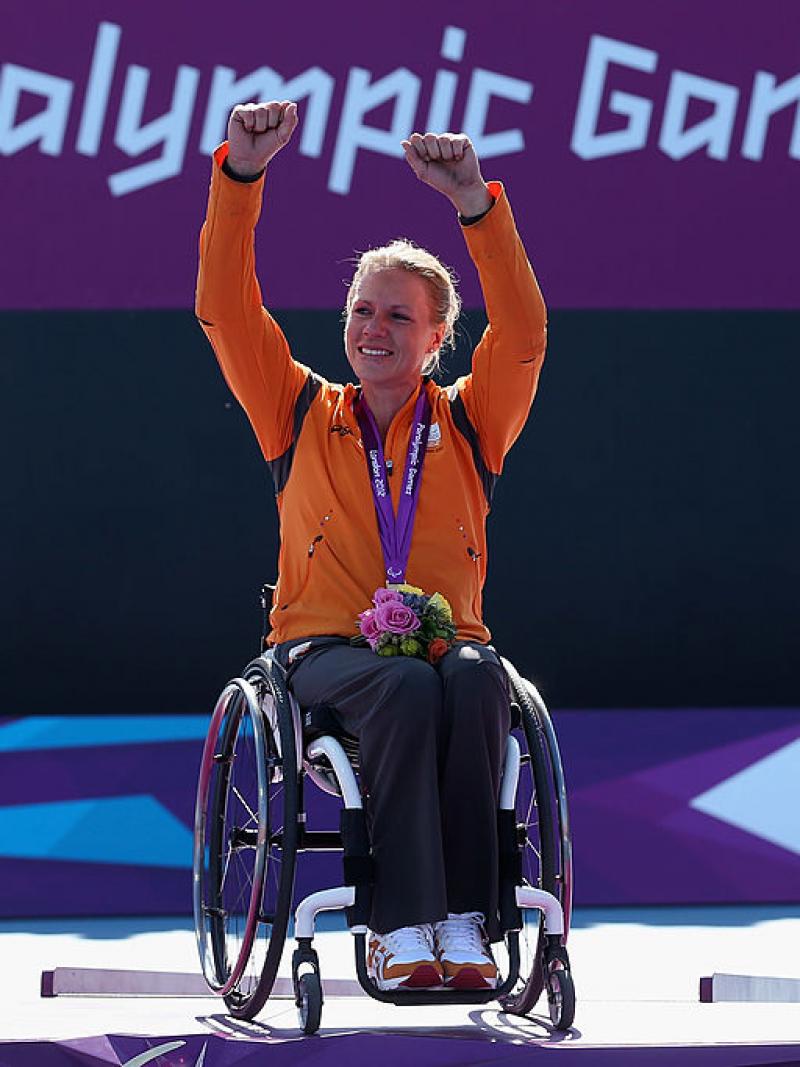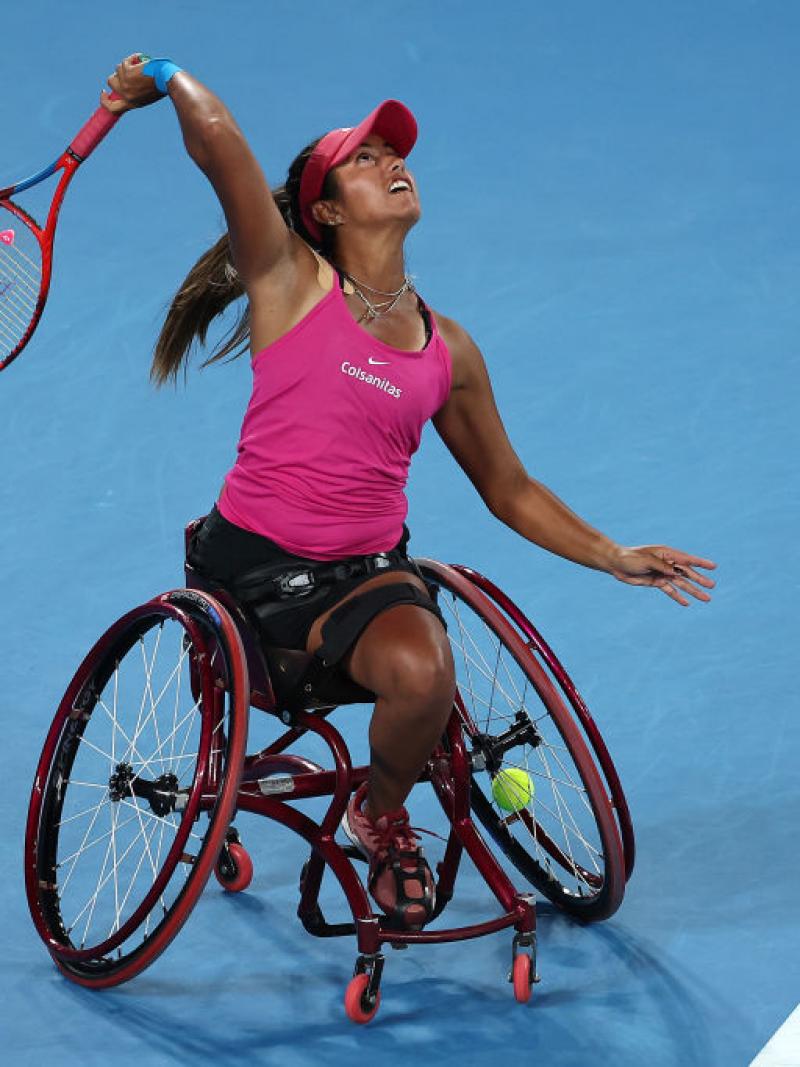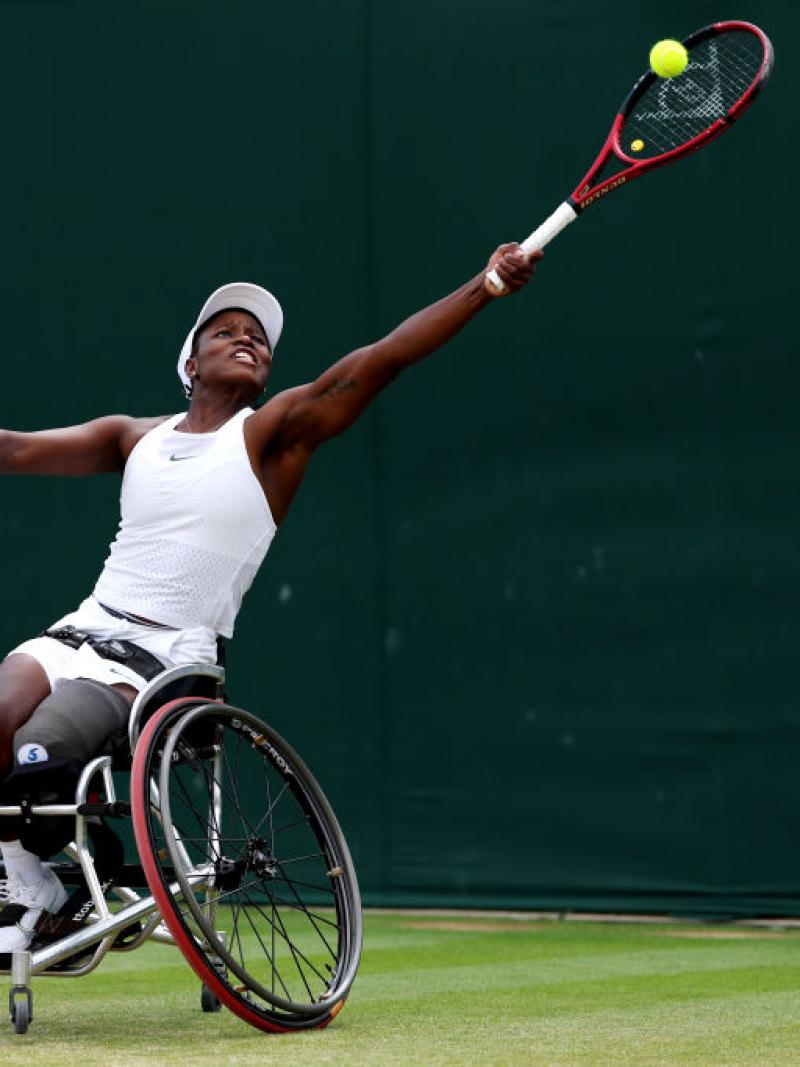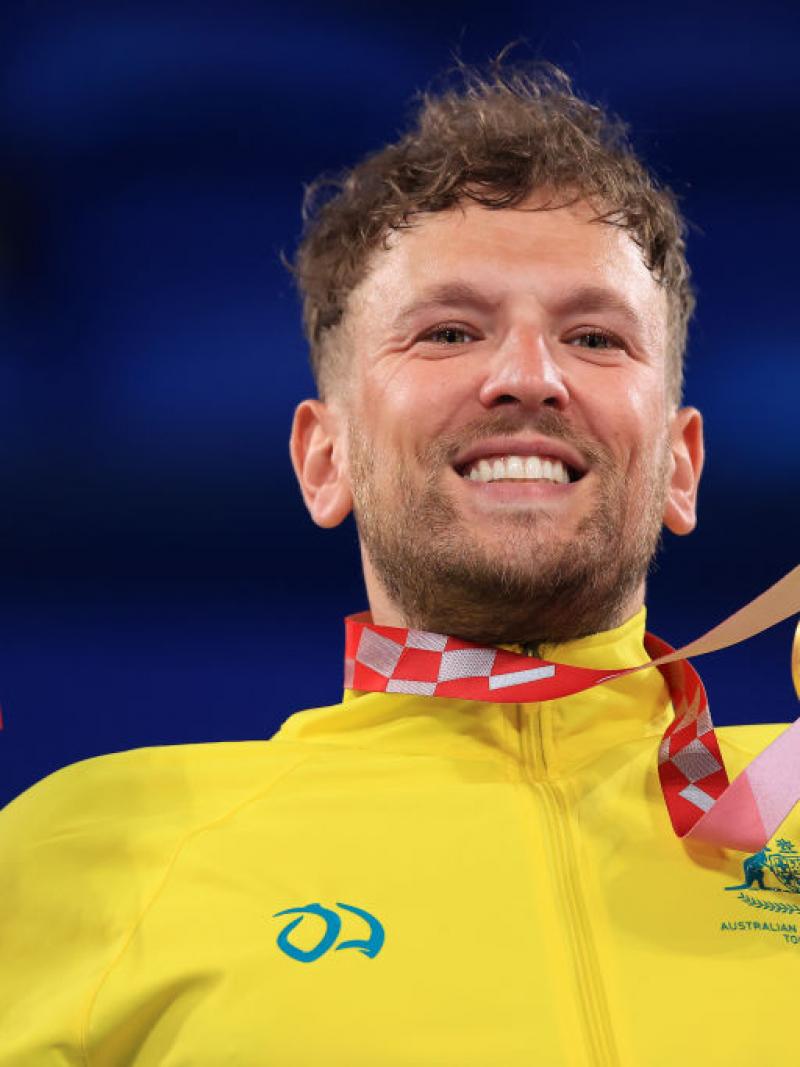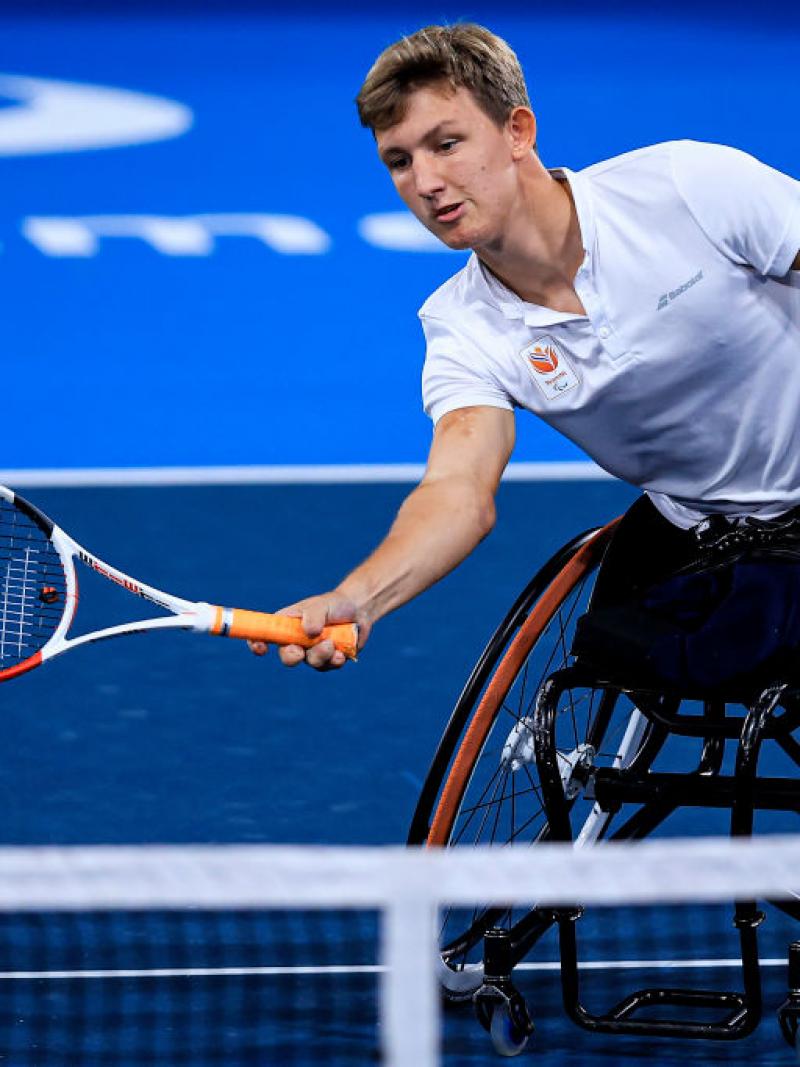Paris 2024: Diede de Groot on being the 'one to beat'
Ahead of the Paris 2024 Paralympics, Dutch wheelchair tennis great Diede de Groot says, "Gold is possible. I know more than before that other players are willing to fight for it." 22 Aug 2024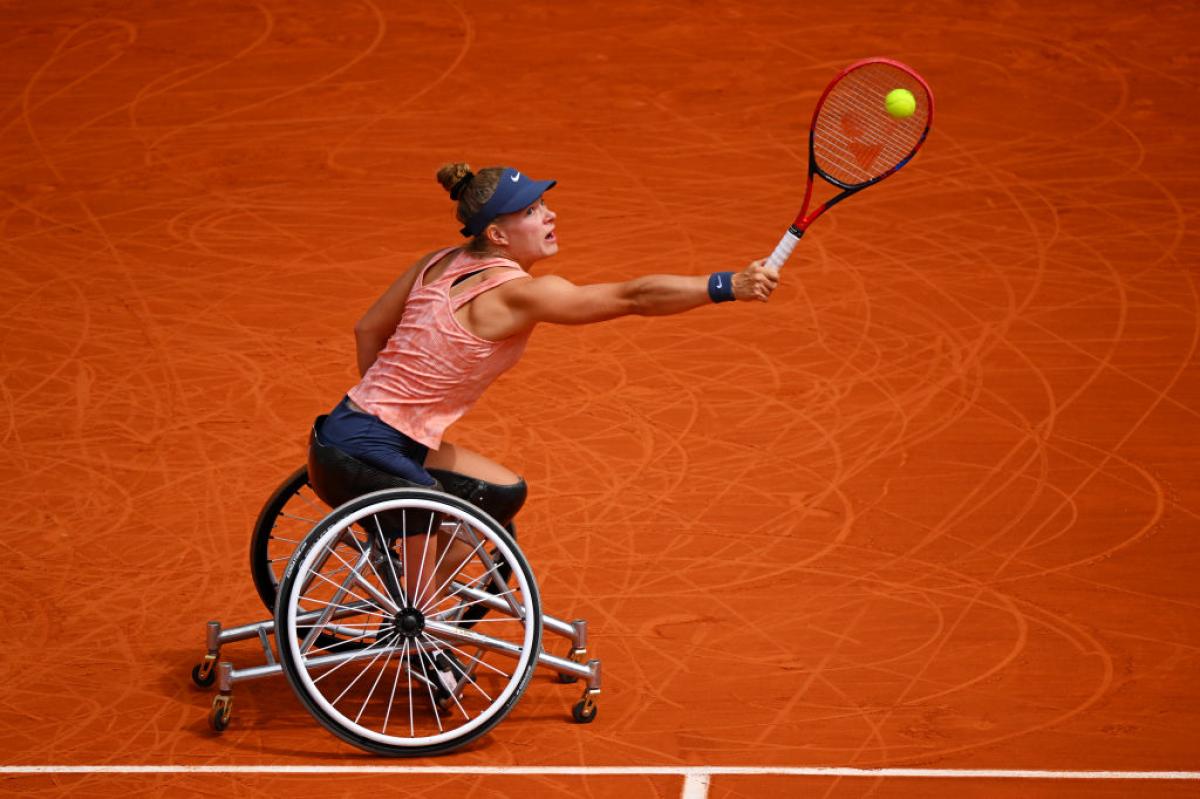
Diede de Groot says it is not easy to become world No. 1 in a sport, but staying at the top is much more difficult. The Dutch wheelchair tennis star has been a dominating force, having only been beaten twice in the women’s singles since the Tokyo 2020 Paralympics.
With less than one week to go until the Paris 2024 Paralympics, she aims to defend her two gold medals. But at the same time, she understands that she will be playing with a “big target” on her back.
“Being the No. 1 player, gold is possible. But I also know more than I knew before that other players are willing to fight for it. That’s good,” she said.
“I think it raises the level of wheelchair tennis. So many girls are fighting to win, which is very positive for wheelchair tennis. I will fight to win, and I’m just looking forward to Paris.”
Being realistic
De Groot has made wheelchair tennis history since taking up the sport 20 years ago. In 2023, de Groot cemented her status as one of the greatest tennis players ever.
She became the first women’s wheelchair tennis player to achieve the Golden Slam in 2021. In 2023, she became the first tennis player to win three successive calendar Grand Slams since 2016, when wheelchair tennis singles competition was featured at all four majors.
She had one of the longest winning streaks in the sport; she was unbeaten in 145 matches between February 2021 and May 2024. Many fans were shocked when de Groot lost to China’s Xiaohui Li at the BNP Paribas World Team Cup, but de Groot recalls the moment differently.
UNBE-LI-VABLE 🤯
— ITF (@ITFTennis) May 11, 2024
Xiaohui Li defeats Diede de Groot 6-3 6-2 and ENDS her 145 match win streak at the World Team Cup pic.twitter.com/d0AdOtkAgw
“It was such a strange moment because, in a way, for those three years that I was unbeaten, I always knew that on any day, I could lose. I was very realistic about this,” de Groot said.
“But when it actually happened, it was quite intense. And in a way, it was a little bit strange that people were sending me hearts and people were sending me love, which is kind. But I was also like, it’s tennis; it happens that the best of the best lose sometimes.”
“I think going through that process got me back down to earth a little bit. I’m even more realistic.”
Pressure is a privilege
De Groot says wheelchair tennis is a “mental game.” Athletes need to understand and analyse every shot their opponent makes and be at the right place on the court.
“The hardest challenge, up to this day, is getting to the ball,” she said.
“The wheelchair part is such a big thing because we are all good at hitting a forehand or a backhand. But it’s actually getting to that ball and having enough space with your racquet, which is one of the most difficult things,” she said.
“The speed of the chair is important, but it’s mainly about reading the game very well. You don’t have to be fast as long as you read it, because then you already know where you go.”
Three successive calendar Grand Slams 💪
— Laureus (@LaureusSport) April 1, 2024
An outstanding achievement by Laureus World Sportsperson of the Year with a Disability Nominee Diede de Groot 👏#Laureus24 pic.twitter.com/NUtsJ5kNvE
The wheelchair tennis competition at Paris 2024 will start on 30 August.
As she prepares for her third Games, de Groot even tries to enjoy the pressure. But she also shared how she copes with stress and anxiety as the “one to beat.”
“The famous Billie Jean King said pressure is a privilege, which I think is true. I think anyone would want to be the one to beat because it’s a good thing,” she said.
“It’s positive, but also, it does bring a lot of stress and sometimes anxiety because you know that you have a very big target on your back. You know that everyone is looking at you. How am I doing things? How can we improve on that?”
“I don’t have that person above me. Getting to world No. 1 was difficult, but staying world No. 1 is more difficult.”
Playing for Orange
With 43 Paralympic medals, the Netherlands are a giant wheelchair tennis powerhouse.
Since wheelchair tennis was introduced at the Paralympic Games in 1992, Dutch players have won every women’s singles gold medal. Esther Vergeer has won seven Paralympic gold medals in her storied career.
De Groot, who took up the sport at age six, grew up watching Dutch wheelchair tennis legends compete.
“I think we are very lucky to have really good champions from the start of wheelchair tennis. Because we are such a small country, I think everyone could already see wheelchair tennis from up close, and that’s why a lot of us got into it.”
Paris 2024 will be the third time de Groot wears the Netherlands’ orange uniform at the Paralympic Games.
“Wheelchair tennis is an individual sport. But playing for Orange doesn’t happen often for us, so it always creates a different atmosphere. I think it’s a good one, because we are a team, and we’re a tight team,” she said.
“So it is good to support each other in the Paralympics as well.”
After earning two gold medals at Tokyo 2020, held without spectators, she looks forward to winning in front of a massive crowd at Paris 2024. Wheelchair tennis events will take place at the Roland-Garros Stadium, which hosts the French Open every year.
“I love Roland Garros. I think the atmosphere is going to be amazing,” she said. “It will be different because we know Roland Garros, but we’re not playing in that tournament. We’re playing the Paralympics.”
Discover more about wheelchair tennis and the sports in the Paris 2024 Paralympic sports programme




